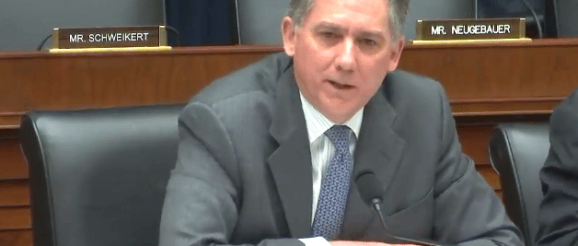Digital Asset Legislation: House Committees Introduces Financial Innovation And Technology For The 21st Century Act | Crowdfund Insider

The Subcommittee on Digital Assets, Financial Technology and Inclusion, part of the House Financial Services Committee, and the Subcommittee on Commodity Markets, Digital Assets, and Rural Development, part of the House Agriculture Committee, have revealed the Financial Innovation and Technology for the 21st Century Act – legislation seeking to provide an updated regulatory approach to digital assets.
The bill is 212 pages long, and the authors have provided some additional documents to provide a summary of what the legislation aims to accomplish.
Several important aspects of the bill include more oversight from the Commodities Future Trading Commission (CFTC).
There is an exemption from registration for digital assets that meet the following requirements:
1) the issuer’s total sales of the digital asset over the prior 12 months does not exceed $75 million;
2) a non-accredited investor’s purchases of the digital asset from the issuer over the prior 12 months are less than the greater of 5% of the purchaser’s annual income or 5% of their net worth;
3) the purchaser does not own more than 10% of the units of the digital asset after the completion of the transaction; and
4) the transaction does not involve equity or debt securities.
Exempt offerings still must file documents and submit semi-annual reports. If a digital asset becomes sufficiently decentralized, it will no longer need to file these reports.
Intermediaries must be registered with the SEC or CFTC.
Disclosure requirements are similar to securities mandating information on involved individuals.
Stablecoins and digital commodities are not securities.
There is language to allow alternative trading systems (ATS) to trade digital assets as well as disintermediated trading.
Statutory language is included to ensure the existence of both the SEC’s FinHub and the CFTC’s LabCFTC – two entities that were created to support Fintech innovation.
At the same time, there is a new Joint Advisory Committee on Digital Assets that involves both the SEC and CFTC.
A further study on DeFi is mandated – indicative of the challenge fo policymakers to fully engage with the concept.
French Hill, Chairman of the Subcommittee on Digital Assets, said that after listening to both sides of the aisle as well as industry stakeholders, they have submitted legislation that will enable innovation while ensuring consumer protection.
“This legislation would not only have prevented FTX from stealing billions of customer funds, but also establishes robust consumer protections and clear rules of the road for market participants,” stated Hill. “I look forward to this historic legislation being considered in both the House Committees on Financial Services and Agriculture next week.”
Glenn “GT” Thompson, Chairman of the House Committee on Agriculture, thanked House Financial Services Chairman Patrick McHenry for his leadership in helping craft the bill while echoing the sentiment that the bill will ensure US leadership in digital assets.
“Today’s introduction of the Financial Innovation and Technology for the 21st Century Act marks a significant milestone in the House Committees on Agriculture and Financial Services efforts to establish a much-needed regulatory framework that protects consumers and investors and fosters American leadership in the digital asset space,” said Char Thompson.
Representative Dusty Johnson, Chair of the Subcommittee on Commodity Markets, Digital Assets, said the digital asset sector is currently muddled in regulatory uncertainty and everyone wants clarity.
“Our bill establishes clear principles to ensure financial security and certainty as digital asset developers continue to innovate.”
McHenry said the introduction of the legislation is a pivotal moment for the US to assert its status as a leader in tech adoption, describing blockchain as the building block for the next generation of the internet.
McHenry predicted the bill will pass out of House Financial Services next week.
Meanwhile, legislation introduced in the Democrat-dominated Senate attempts to accomplish a similar goal. Yet this legislation will have a more difficult time in gaining Committee approval and a floor vote. While the House legislation stands a very good chance of being approved, it could be the Senate that is the stumbling block.
Recently, the European Union has approved comprehensive legislation that also attempts to create an updated regulatory ecosystem to support digital assets. MiCA or Markets in Crypto Assets is now going through a process of becoming actionable. The European Securities and Markets Authority (ESMA) has published a time frame for the implementation of MiCA.
The decision by the SEC to take a regulation-by-enforcement approach has left many people frustrated with the current leadership of the Commission, which appears unable to accept change and innovation while working to protect consumers.
